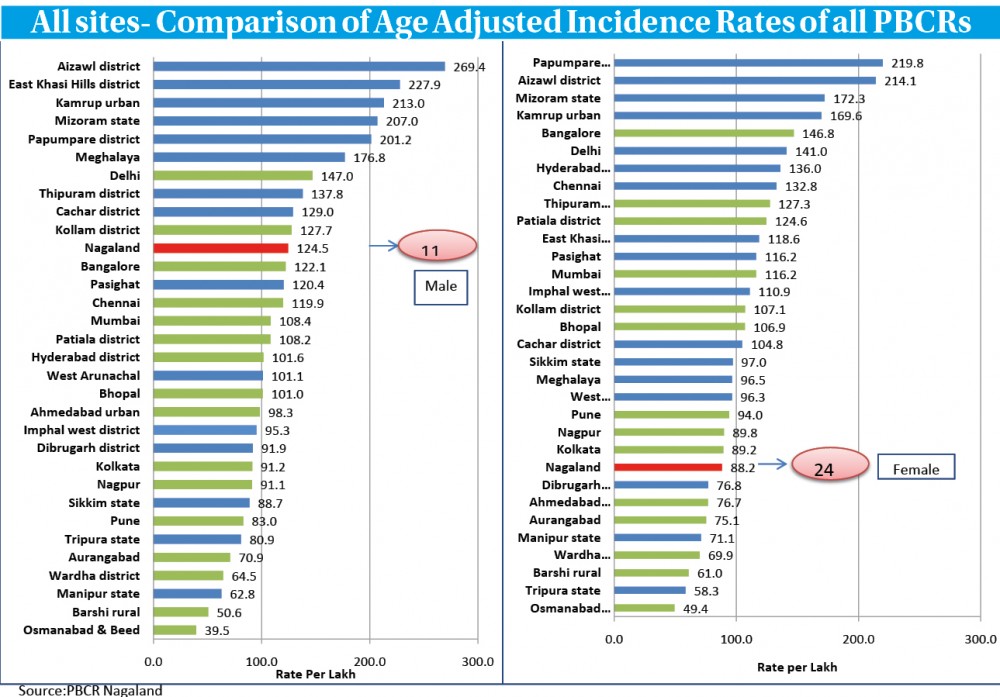
Morung Express News
Kohima | September 9
Globally an estimated 19.3 million new cancer cases are registered leading to 10 million cancer deaths and the global cancer burden is expected to be 28.4 million cases by 2040; a 47% rise from 2020.
While the number of cancer incidence in India is projected to increase to 29.8 million by 2025 from 26.7 million in 2021, the Northeast region has been dubbed as the ‘hotspot’ of cancer in the country. Notably, Nagaland ranked 11th in cancer incidence in India and 2nd highest in the world for nasopharynx cancer.
This presentation was given by Dr Vinotsolie V Khamo, Principal Investigator, Population Based Cancer Registry & Officer in charge BSL labs, Research and Ethics at the inauguration programme of ‘affordable cancer treatment’ at Hotel Vivor, Kohima this morning.
Speaking on the theme ‘Common Cancer Burden: Global and India Perspective with Special reference to Nagaland’ Khamo informed that about 700 new cases of cancer in the state are registered annually with the average number of cancer deaths as 126 per year.
Cancer incidence rate in male, she informed stands at 124.5 (AAR) per lakh population and in female 88.2 (AAR) with tobacco related cancer in male at 39.3 % and female at 11.5%.
In this connection, Dr Ravikant Singh, Officer-in-charge, HBCH & RC, Muzzaffarpur viewed that this could be due to the fact that intake of pan masalas and gutkhas are disproportionately high in the Northeast.
Expressing grave concern, he emphasised the need for intensive awareness programmes among the younger population (students) to prevent cancer related diseases in the future.
A major public health problem
Dr Khamo said cancer has emerged as a major public health problem in the State where 57% of the cancer patients sought health care outside the State and 75% were availing treatment at private health facilities.
Among those, she said 60.7% of cancer patients were self-financing while only 10.7% were covered by health insurance.
She expressed concern about the out-of- pocket expenditures of people seeking cancer treatment, particularly those cancer patients coming from rural and remote areas, most of whom are unable to afford treatment owing to low income and lack of savings.
Concerns and intervention required
Towards this issue, Dr Khamo suggested on the immediate need to create cancer awareness programmes among the general populace and make cancer a ‘notifiable disease.’
Besides, she also suggested on the need to provide early detection facilities/cancer screening as most of the cases are detected at late stage and also counselling and rehabilitation facility, create awareness on the availability of healthcare insurance schemes and provide common cancer drugs at subsidized rates.
The day long programme covered various topics on oral cancer, cervical cancer, breast cancer, role of National Tobacco Quitline Services, establishing of referral linkages for diagnosis and management and community outreach activities for early detection, screening and prevention of common cancers.






